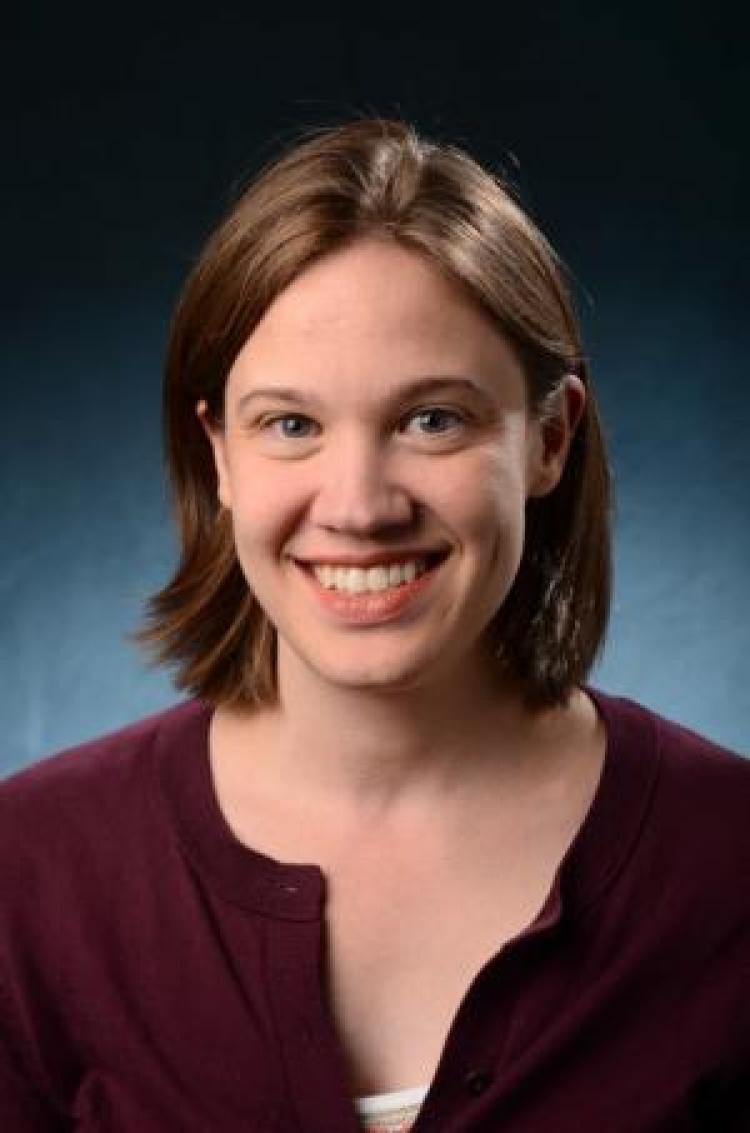Prof. Rebecca Scarborough elected to LSA Executive Committee

During her time in office, Prof. Scarborough would like to focus on two areas that she believes will contribute to broadening our base, especially among students, and providing pertinent resources to our members.
1. Encouraging broad student participation and promoting the student-focused resources provided by LSA
There is a diversity of experiences among students in Linguistics, from fellowship students in well-funded PhD programs to unfunded MA students pursuing the degree at their own cost. There are students who will earn PhDs and become stars in the academic field; students with non-academic aspirations; students who change their plans; and students who won’t pursue the next degree. In my experience, students with a traditional academic endpoint in mind think of the LSA as a useful resource, giving them opportunities to present their academic work and eventually serving as the venue for academic job interviews. However, non-PhD students or students following less directly academic paths often tend to be less involved with the LSA. I believe, however, that all students of linguistics could and should find support in the LSA. The Society already has active committees and special interest groups focused on student interests and concerns, linguistics outside academia, etc., as well as outreach and networking resources applicable to any linguist. We can leverage these resources and ensure that we are effectively serving our full base.
I would be interested to support initiatives that reach out to all students and show them the role that they can play in the LSA and the role that the LSA can play for them. For instance, I would advocate for more active communication with Directors of Graduate and Undergraduate Studies to solicit their help in disseminating information about the LSA and highlighting the resources it provides to students and other members. Further initiatives such as providing new graduate students with memberships, encouraging departments to sponsor student memberships, or inspiring deeper involvement from non-member students would also contribute to the goal of promoting broader participation in the LSA and supporting student linguists at all levels and across a range of experiences and plans. If students can better see the work of the LSA, they can derive greater benefit from the society, and they are more likely to find value in continuing their participation and membership.
2. Articulating what we do, the skills we have as linguists, and why they’re important
All of us are called upon to talk with non-linguists and the public about linguistics and what linguists do. The LSA’s recognition of the importance of such outreach is underscored e.g., by the plenary of past President John Rickford, as well as by the existence of various committees and working groups on Public Relations, Public Policy, etc. Indeed, the LSA and its members have contributed to a number of public conversations relating to language and human diversity. But the ability to articulate the substance and the value of linguistics has other crucial practical applications as well. Given the diversity of post-graduation experiences students in Linguistics will have, our members are also called upon to talk outside the discipline for instance to potential employers. Of course our subject matter is important. Linguistics inherently focuses on language and its intersection with all other aspects of our communal lives – technology, social interaction, argumentation, marginalized communities, just to name a few. But the strengths of a linguist extend beyond expertise in our subject matter. Our enterprise, in combing scientific methodologies with humanistic observation, entails the development of broadly applicable skills like critical thinking, attention to detail, collaboration, and excellent oral and written communication (which we study, as well as practice).
I would be interested to support initiatives that would provide resources (perhaps even talking points) for those who engage in conversations about linguistics as a discipline with non-linguists (employers, university administrators, funding agencies). Such resources should complement the existing resources for public outreach. An addition to the LSA’s very useful series of FAQ pamphlets entitled, e.g., “What can a linguist do for you?” could be helpful to a variety of LSA members, from those talking about the discipline to those teaching the discipline. A focus on the value of linguistics and linguistic skills could even serve to help promote the field, for instance among undergraduates who want assurance that they are embarking on something valuable and useful.
Congratulations, Rebecca! We look forward to the impact your participation on the LSA Executive Committee will have!


